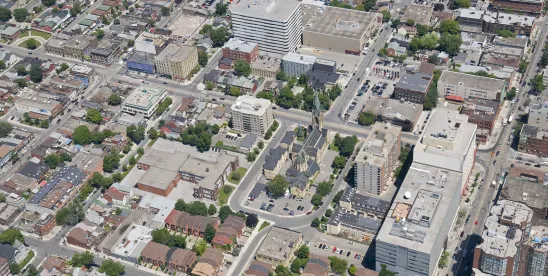Griffin v. Melrose MA Plan. Bd., No. 23 MISC 000277 (KTS), 2024 WL 146450 (Mass. Land Ct. Jan. 12, 2024)
In Griffin v. Melrose MA Plan. Bd., pro se plaintiff David Griffin (“Griffin”) appealed a decision of the Melrose Board of Appeals (the “Board”) granting a special permit to Middlesex Development LLC to demolish a two-unit dwelling and build a four-unit townhouse in Melrose (the “Decision”). The Land Court granted defendant the Board’s Rule 12(b)(1) motion to dismiss the complaint for lack of subject matter jurisdiction on the grounds that Griffin failed to adhere to the filing and notice requirements of G. L. c. 40A, § 17 (“Section 17”).
Section 17 allows any person aggrieved by a decision of the board of appeals or other special permit granting authority to challenge that decision. The deadline to file an appeal is twenty days from the date on which the decision is filed with the city or town clerk. The statute also requires that the plaintiff provide notice of such an appeal, with a copy of the complaint, to the city or town clerk within that same twenty-day period. In Griffin, the Land Court emphasized that this deadline “is not merely a procedural limitation but is an essential part of the remedy.” The stringent notice and filing requirements are intended to provide interested third persons with constructive notice of the appeal and an opportunity to review its details.
In Griffin, the Decision was filed with the Melrose City Clerk on May 24, 2023, which gave Griffin until June 13, 2023 to file his appeal. Although Griffin emailed the Melrose City Clerk on June 12, 2023 to indicate that he opposed the project and wanted to appeal the Decision, he failed to include a copy of the complaint. Griffin subsequently filed his complaint with the Land Court on June 15, 2023.
As Griffin failed to strictly adhere to the twenty-day requirement under Section 17 to challenge the decision, the Land Court held that Griffin’s two-day delay had stripped the Court of subject matter jurisdiction. Further, the Court held that Griffin’s failure to timely provide the City Clerk with notice of the appeal and a copy of the complaint independently doomed his challenge. Although Griffin sought sympathy from the court due to his lack of legal education, his did not persuade the Court to allow the challenge to proceed. The Court explained that “[w]hile the court may, in some circumstances, extend courtesies to a pro se litigant due to his or her lack of legal training, Chapter 40A, § 17 requires strict compliance.” After all, if no appeal has been timely filed, the Melrose Zoning Ordinance allows a permit holder to begin work on the project on the twenty-first day after the filing of the decision with the city or town clerk. Allowing an untimely appeal to proceed would undermine the certainty intended by the ordinance and Section 17 for the exercise of rights under the issued zoning relief.








 />i
/>i

